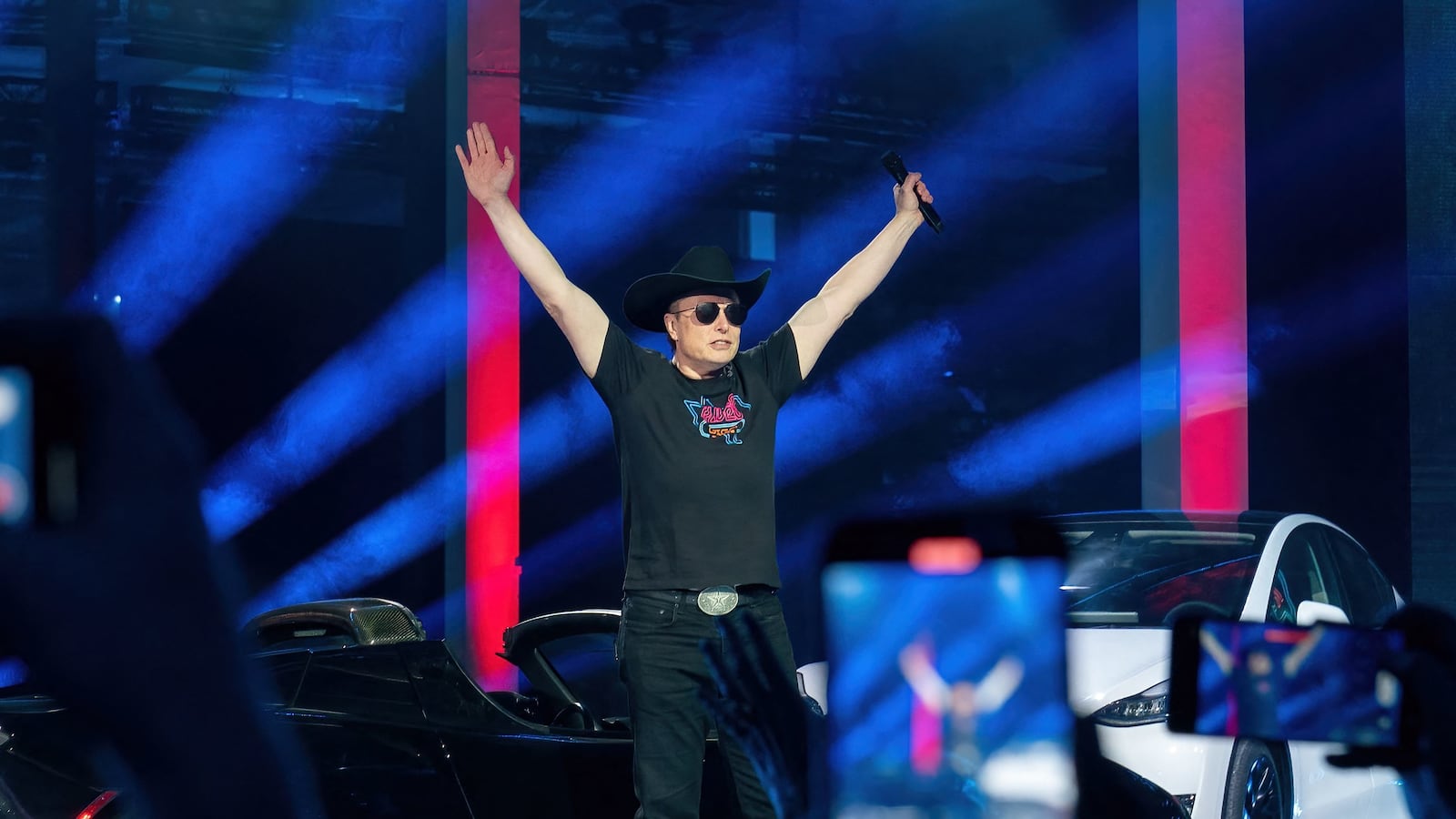Thrust into chaos by Elon Musk, Twitter adopted a so-called “poison pill” on Friday to inhibit the world’s richest man—or any party—from taking over the company.
The rights plan, as a company press release called it, “will reduce the likelihood that any entity, person or group gains control of Twitter through open market accumulation without paying all shareholders an appropriate control premium” or giving the board adequate time to consider the proposal.
The company said it could still a consider a takeover bid it believed was “in the best interests of Twitter and its shareholders.”
The poison pill will be activated if any party gains a stake in the company larger than 15 percent without the board’s approval. (Musk currently holds a 9.2 percent interest in the business.) At that point, other shareholders will be able to buy stock at a set price, making it harder for the initial purchaser to assume a controlling interest.
Musk threw markets into turmoil this week after submitting a non-binding offer to take Twitter private at a price of $54.20 per share—a number that, perhaps not coincidentally, including the digits 420, a figure frequently associated with marijuana and a recurring element of his online trolling.
“My conclusion,” the billionaire Mark Cuban tweeted in reference to the number, “[Musk] is fucking with the SEC.”
There are plenty of other reasons to doubt the seriousness of the takeover offer, too. Among the largest is Musk’s declaration in 2018 (also via Twitter) that he was considering taking his electric carmaker, Tesla, private at a price of $420 per share.
That deal never happened. In fact, Musk ultimately settled a fraud charge with the SEC over the matter, agreeing to pay a $20 million fine and resign as Tesla’s chairman, in addition to other punishments.
There is also the matter of how Musk would pay for his $43 billion takeover proposal. Daniel Ives, a managing partner at Wedbush Securities, told The Daily Beast on Thursday that Musk would likely use his Tesla and SpaceX stock as collateral to raise $15 billion to $20 billion in debt, though there would be pragmatic difficulties with that approach.
In the alternative, Musk could sell huge volumes of his shares to fund the purchase, though that option appears less likely. Even if he could pull off the deal, though, there are questions about whether Musk would truly want the scrutiny that would come with owning one of the planet’s most influential communications platforms while he is already dealing with numerous other controversies.
The billionaire has already reneged on one deal with Twitter. After he announced his 9.2 percent investment, the company offered him a board seat, which he accepted.
Then, last week, Twitter’s beleaguered CEO, Parag Agrawal, announced that Musk had pulled out at the last minute.
“Elon’s appointment to the board was to become officially effective 4/9, but Elon shared that same morning that he will no longer be joining,” he tweeted. But, Agrawal quickly added, “I believe this is for the best.”







